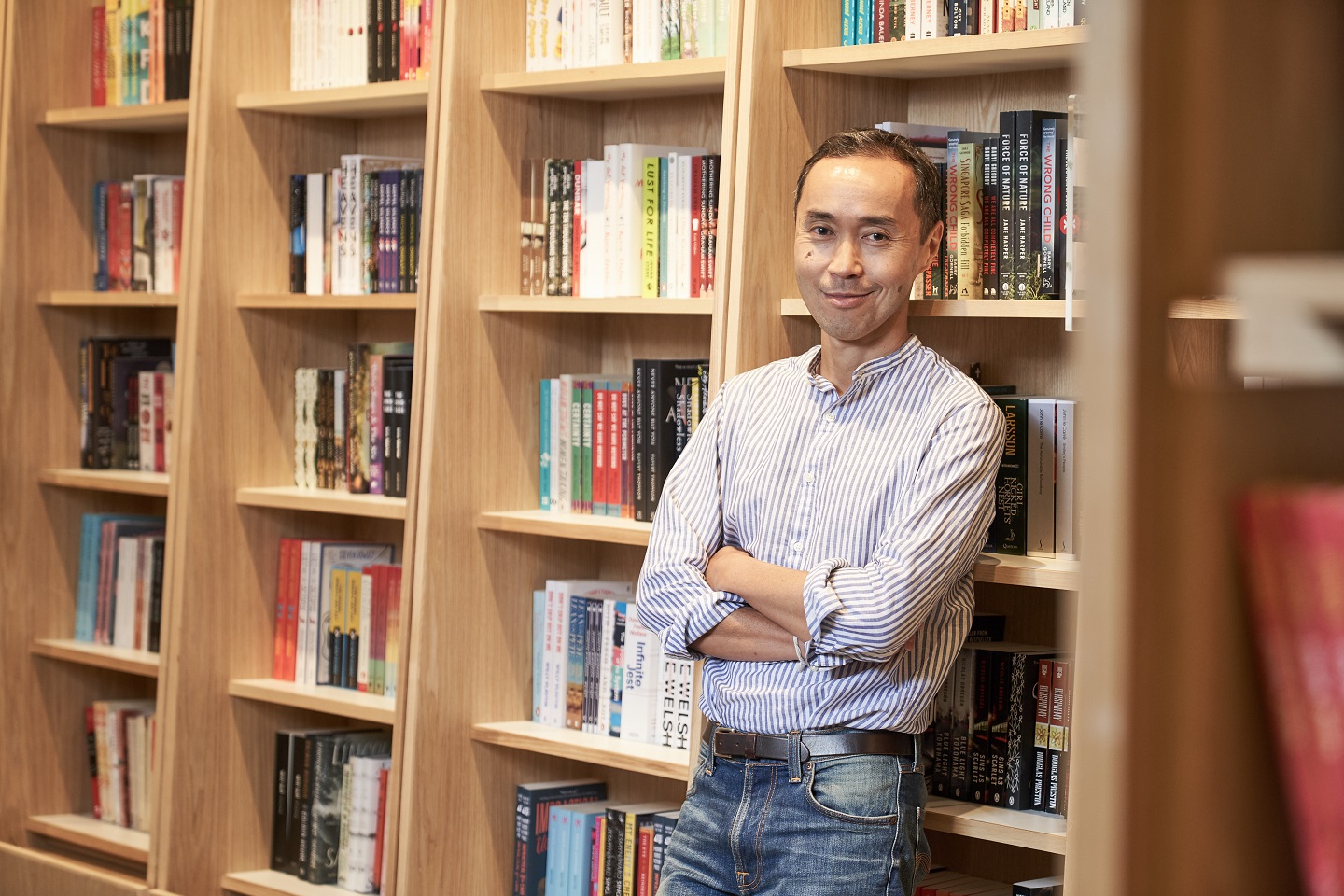
The rich tapestry of Malaysian and Southeast Asian life has heavily embroidered Aw’s previous works, which include Man Booker Prize longlisted The Harmony Silk Factory and Five Star Billionaire (Photography by Neo SJ)
It is standing room only at Lit Books by 8pm on a stormy Thursday night. Wet umbrellas drip in a corner, little bells trill in welcome as the door swings open and shut and the murmurs of a restless crowd rise and fall.
Guest of honour Tash Aw is sitting outside, answering the few questions we are able to squeeze in before his Meet the Author session. Torrential rain and inevitable traffic had turned the 20-minute drive from his parents’ home in Damansara to the independent bookstore at Tropicana Avenue into an hour-long nightmare, resulting in our delayed interview.
“You would think I would know this by now, but traffic here still manages to surprise me,” he says, apologising profusely. He is graciousness personified and, coupled with his eloquence and steady eye contact, makes for a delightful conversationalist.
Although this visit home was meant to be strictly informal, to play catch-up with family and friends, the novelist and essayist genially agreed to appearances and interviews as the trip coincides with the release of his fourth book, We, The Survivors. It follows the unlikely protagonist Ah Hock, an uneducated man from a fishing village who struggles to earn a living and ends up killing a migrant worker from Bangladesh. This is not a spoiler — the murder sets the wheels in motion for the real tale, a whydunit rather than a whodunit. The circumstances leading to that fateful night are unravelled in an interview with Pang Su-Min, a sociology postgraduate — fresh from her studies in the US — looking to tell his story.
“Part of why I wanted to write this novel in particular was to test the boundaries of who gets to be in literature,” says Aw. “Someone like Ah Hock does not have the words. He might have the natural intelligence and sensitivity but, ultimately, literature is the domain of the educated. We only ever hear their voices and perspectives. Here too, Su-Min is the one writing it — she has the language and education and sense of how to build the story. I wanted to question the authority and dominance in literature. Is it possible for other voices in society to exist in literature without handing over their stories to someone else?”
This point is later underscored during the question-and-answer segment of the Meet the Author session, when Aw talks about the stark differences between Su-Min and Ah Hock in terms of privilege. In a scene in the novel, for instance, Ah Hock offers to share part of his simple meal of rice with the writer but, to his bafflement, she declines on account of not eating carbohydrates.
“For some people, if they do not eat carbs, they die,” he says, referencing Ah Hock, and the audience laughs, a jarring reaction to what seems a grave point. The event continues smoothly, with Aw signing books late into the evening.
---
For the full story, pick up a copy of The Edge Malaysia (Sept 23, 2019) at your nearest news stand. Save by subscribing to us for your print and/or digital copy.


